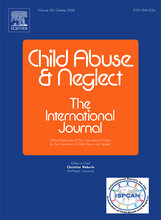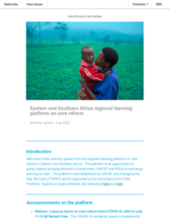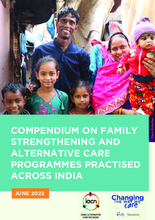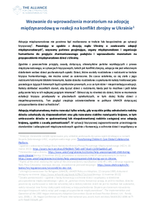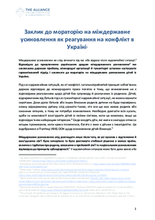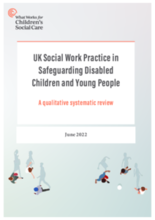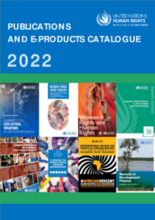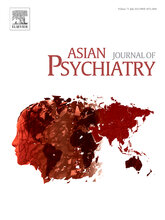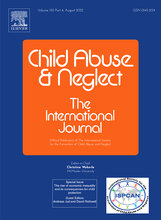Displaying 1021 - 1030 of 10391
Debates exist regarding whether foster youth should be asked about their placement preferences following removal, with only youth aged 12 years and older at times assumed legally competent to provide input. The present study evaluated whether placement-related factors known to predict youth's well-being also shape their placement preferences and whether preferences differ between youth below and above the age at which they are considered legally competent to provide input.
This is the monthly update of the Eastern and Southern Africa Regional Learning Platform published in July 2022.
This report maps the family strengthening and alternative care practices across 14 organisations and provides an overview into a number of elements including nature of care, target, coverage, intervention, the longevity of care, linkage to the child protection system, access to sponsorship provided by the State, challenges in implementing the program, among other aspects.
Adopcja międzynarodowa nie powinna być realizowana w trakcie lub bezpośrednio po sytuacji kryzysowej. Pozostając w zgodzie z decyzją rządu Ukrainy o zawieszeniu adopcji międzynarodowych, wzywamy państwa przyjmujące, organy międzynarodowe i organizacje humanitarne do przyjęcia zharmonizowanego podejścia i wprowadzenia moratorium na przysposobienie międzynarodowe dzieci z Ukrainy. Zgodnie z powszechnie przyjętą zasadą dotyczącą obowiązków państw wynikających z prawa międzynarodowego, w sytuacjach kryzysowych, takich jak konflikt zbrojny, adopcja nie jest właściwym działaniem wobec dzieci pozbawionych opieki. Dzieci, które zostały rozdzielone z rodzicami w trakcie kryzysu humanitarnego, nie można uznać za osierocone. Do czasu ustalenia, co się stało z jego rodzicami lub innymi bliskimi krewnymi, każde dziecko rozdzielone z opiekunami należy traktować jako posiadające żyjących krewnych bądź opiekunów prawnych, a co za tym idzie – niepotrzebujące adopcji.
Міждержавне усиновлення не слід починати під час або відразу після надзвичайної ситуації. Відповідно до призупинення українським урядом міждержавного усиновлення ми закликаємо держави прийому, міжнародні організації й гуманітарні установи застосувати гармонізований підхід і закликати до мораторію на міждержавне усиновлення дітей із України.
During emergencies, such as conflict, it is a well-accepted principle of States’ obligations under international law that adoption is not an appropriate response for unaccompanied and separated children. This is a joint call for a moratorium on intercountry adoption in response to the conflict in Ukraine. In line with the Ukrainian Government’s suspension of intercountry adoption, the joint statement urges receiving States, international bodies, and humanitarian agencies to adopt a harmonised approach and call for a moratorium on intercountry adoptions from Ukraine.
This study aimed to synthesize existing qualitative UK evidence on the known safeguarding risks and poorer outcomes for disabled children and young people who are at risk of, or who have experienced abuse. This study focused on research, which had sought the views of disabled children and young people, parents/carers and practitioners.
The Office of the United Nations High Commissioner for Human Rights (OHCHR) produces an extensive range of publications and e-products on a variety of human rights-related subjects. This broad portfolio provides information of interest to governments, national institutions, civil society, academia, the general public and the media, among other stakeholders. OHCHR publications and e-products aim to increase knowledge and raise awareness about human rights and fundamental freedoms, and to publicize ways of promoting and protecting them worldwide. They also seek to encourage debate on topical human rights issues under discussion at the United Nations.
There is evidence that children in residential care institutions (RCI) have higher rates of psychological problems, suicide and criminal behaviour. There is only one study in Sri Lanka which has examined the psychological well-being of children in RCIs. This study aims to provide further evidence to formulate policies related to the mental health of institutionalized children in the local context.
This U.S. based study systematically summarizes the effectiveness of peer parent programs in child welfare on case outcomes, specifically permanency, time-in-care, and re-entry post reunification.

